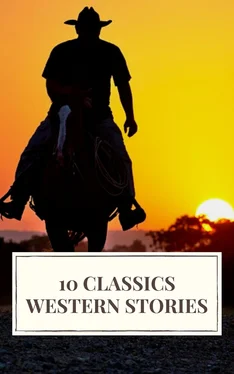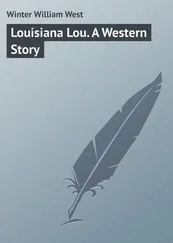Samuel Merwin - 10 Classics Western Stories
Здесь есть возможность читать онлайн «Samuel Merwin - 10 Classics Western Stories» — ознакомительный отрывок электронной книги совершенно бесплатно, а после прочтения отрывка купить полную версию. В некоторых случаях можно слушать аудио, скачать через торрент в формате fb2 и присутствует краткое содержание. Жанр: unrecognised, на английском языке. Описание произведения, (предисловие) а так же отзывы посетителей доступны на портале библиотеки ЛибКат.
- Название:10 Classics Western Stories
- Автор:
- Жанр:
- Год:неизвестен
- ISBN:нет данных
- Рейтинг книги:3 / 5. Голосов: 1
-
Избранное:Добавить в избранное
- Отзывы:
-
Ваша оценка:
- 60
- 1
- 2
- 3
- 4
- 5
10 Classics Western Stories: краткое содержание, описание и аннотация
Предлагаем к чтению аннотацию, описание, краткое содержание или предисловие (зависит от того, что написал сам автор книги «10 Classics Western Stories»). Если вы не нашли необходимую информацию о книге — напишите в комментариях, мы постараемся отыскать её.
The novels are sorted alphabetically by the authors.
Content:
The Log of a Cowboy by Andy Adams
The Bridge of the Gods by Frederic Homer Balch
The Lure of the Dim Trails by B.M. Bower
Hidden Water by Dane Coolidge
The Last of the Mohicans by James Fenimore Cooper
The Prairie by James Fenimore Cooper
Salomy Jane by Bret Harte
Astoria by Washington Irving
The road to Frontenac by Samuel Merwin
That Girl Montana by Marah Ellis Ryan
10 Classics Western Stories — читать онлайн ознакомительный отрывок
Ниже представлен текст книги, разбитый по страницам. Система сохранения места последней прочитанной страницы, позволяет с удобством читать онлайн бесплатно книгу «10 Classics Western Stories», без необходимости каждый раз заново искать на чём Вы остановились. Поставьте закладку, и сможете в любой момент перейти на страницу, на которой закончили чтение.
Интервал:
Закладка:
On reaching the horse stock, we succeeded in catching a sleepy old horse belonging to Rod Wheat's mount, and I rode him bridleless and bareback to camp. We received an ovation on our arrival, the recovery of the saddle horses being a secondary matter compared to the buffalo veal. "So it was buffalo that scared our horses, was it, and ran them out of camp?" said McCann, as he helped to unlash the calf. "Well, it's an ill wind that blows nobody good." There was no particular loss of time, for the herd had grazed away on our course several miles, and after changing our mounts we overtook the herd with the news that not only the horses had been found, but that there was fresh meat in camp—and buffalo veal at that! The other men out horse hunting, seeing the cattle strung out in traveling shape, soon returned to their places beside the trailing herd.
We held a due northward course, which we figured ought to carry us past and at least thirty miles to the westward of the big Indian encampment. The worst thing with which we had now to contend was the weather, it having rained more or less during the past day and night, or ever since we had crossed the Salt Fork. The weather had thrown the outfit into such a gloomy mood that they would scarcely speak to or answer each other. This gloomy feeling had been growing on us for several days, and it was even believed secretly that our foreman didn't know where he was; that the outfit was drifting and as good as lost. About noon of the third day, the weather continuing wet with cold nights, and with no abatement of the general gloom, our men on point noticed smoke arising directly ahead on our course, in a little valley through which ran a nice stream of water. When Flood's attention was directed to the smoke, he rode forward to ascertain the cause, and returned worse baffled than I ever saw him.
It was an Indian camp, and had evidently been abandoned only that morning, for the fires were still smouldering. Ordering the wagon to camp on the creek and the cattle to graze forward till noon, Flood returned to the Indian camp, taking two of the boys and myself with him. It had not been a permanent camp, yet showed evidence of having been occupied several days at least, and had contained nearly a hundred lean-tos, wickyups, and tepees—altogether too large an encampment to suit our tastes. The foreman had us hunt up the trail leaving, and once we had found it, all four of us ran it out five or six miles, when, from the freshness of it, fearing that we might be seen, we turned back. The Indians had many ponies and possibly some cattle, though the sign of the latter was hard to distinguish from buffalo. Before quitting their trail, we concluded they were from one of the reservations, and were heading for their old stamping ground, the Pan-handle country,—peaceable probably; but whether peaceable or not, we had no desire to meet with them. We lost little time, then, in returning to the herd and making late and early drives until we were out of that section.
But one cannot foresee impending trouble on the cattle trail, any more than elsewhere, and although we encamped that night a long distance to the north of the abandoned Indian camp, the next morning we came near having a stampede. It happened just at dawn. Flood had called the cook an hour before daybreak, and he had started out with Honeyman to drive in the remuda, which had scattered badly the morning before. They had the horses rounded up and were driving them towards camp when, about half a mile from the wagon, four old buffalo bulls ran quartering past the horses. This was tinder among stubble, and in their panic the horses outstripped the wranglers and came thundering for camp. Luckily we had been called to breakfast, and those of us who could see what was up ran and secured our night horses. Before half of the horses were thus secured, however, one hundred and thirty loose saddle stock dashed through camp, and every horse on picket went with them, saddles and all, and dragging the picket ropes. Then the cattle jumped from the bed ground and were off like a shot, the fourth guard, who had them in charge, with them. Just for the time being it was an open question which way to ride, our saddle horses going in one direction and the herd in another. Priest was an early riser and had hustled me out early, so fortunately we reached our horses, though over half the outfit in camp could only look on and curse their luck at being left afoot. The Rebel was first in the saddle, and turned after the horses, but I rode for the herd. The cattle were not badly scared, and as the morning grew clearer, five of us quieted them down before they had run more than a short mile.
The horses, however, gave us a long, hard run, and since a horse has a splendid memory, the effects of this scare were noticeable for nearly a month after. Honeyman at once urged our foreman to hobble at night, but Flood knew the importance of keeping the remuda strong, and refused. But his decision was forced, for just as it was growing dusk that evening, we heard the horses running, and all hands had to turn out, to surround them and bring them into camp. We hobbled every horse and side-lined certain leaders, and for fully a week following, one scare or another seemed to hold our saddle stock in constant terror. During this week we turned out our night horses, and taking the worst of the leaders in their stead, tied them solidly to the wagon wheels all night, not being willing to trust to picket ropes. They would even run from a mounted man during the twilight of evening or early dawn, or from any object not distinguishable in uncertain light; but the wrangler now never went near them until after sunrise, and their nervousness gradually subsided. Trouble never comes singly, however, and when we struck the Salt Fork, we found it raging, and impassable nearly from bank to bank. But get across we must. The swimming of it was nothing, but it was necessary to get our wagon over, and there came the rub. We swam the cattle in twenty minutes' time, but it took us a full half day to get the wagon over. The river was at least a hundred yards wide, three quarters of which was swimming to a horse. But we hunted up and down the river until we found an eddy, where the banks had a gradual approach to deep water, and started to raft the wagon over—a thing none of the outfit had ever seen done, though we had often heard of it around camp-fires in Texas. The first thing was to get the necessary timber to make the raft. We scouted along the Salt Fork for a mile either way before we found sufficient dry, dead cottonwood to form our raft. Then we set about cutting it, but we had only one axe, and were the poorest set of axemen that were ever called upon to perform a similar task; when we cut a tree it looked as though a beaver had gnawed it down. On horseback the Texan shines at the head of his class, but in any occupation which must be performed on foot he is never a competitor. There was scarcely a man in our outfit who could not swing a rope and tie down a steer in a given space of time, but when it came to swinging an axe to cut logs for the raft, our lustre faded. "Cutting these logs," said Joe Stallings, as he mopped the sweat from his brow, "reminds me of what the Tennessee girl who married a Texan wrote home to her sister. 'Texas,' so she wrote, 'is a good place for men and dogs, but it's hell on women and oxen.'"
Dragging the logs up to the place selected for the ford was an easy matter. They were light, and we did it with ropes from the pommels of our saddles, two to four horses being sufficient to handle any of the trees. When everything was ready, we ran the wagon out into two-foot water and built the raft under it. We had cut the dry logs from eighteen to twenty feet long, and now ran a tier of these under the wagon between the wheels. These we lashed securely to the axle, and even lashed one large log on the underside of the hub on the outside of the wheel. Then we cross-timbered under these, lashing everything securely to this outside guard log. Before we had finished the cross-timbering, it was necessary to take an anchor rope ashore for fear our wagon would float away. By the time we had succeeded in getting twenty-five dry cottonwood logs under our wagon, it was afloat. Half a dozen of us then swam the river on our horses, taking across the heaviest rope we had for a tow line. We threw the wagon tongue back and lashed it, and making fast to the wagon with one end of the tow rope, fastened our lariats to the other. With the remainder of our unused rope, we took a guy line from the wagon and snubbed it to a tree on the south bank. Everything being in readiness, the word was given, and as those on the south bank eased away, those on horseback on the other side gave the rowel to their horses, and our commissary floated across. The wagon floated so easily that McCann was ordered on to the raft to trim the weight when it struck the current. The current carried it slightly downstream, and when it lodged on the other side, those on the south bank fastened lariats to the guy rope; and with them pulling from that side and us from ours, it was soon brought opposite the landing and hauled into shallow water. Once the raft timber was unlashed and removed, the tongue was lowered, and from the pommels of six saddles the wagon was set high and dry on the north bank. There now only remained to bring up the cattle and swim them, which was an easy task and soon accomplished.
Читать дальшеИнтервал:
Закладка:
Похожие книги на «10 Classics Western Stories»
Представляем Вашему вниманию похожие книги на «10 Classics Western Stories» списком для выбора. Мы отобрали схожую по названию и смыслу литературу в надежде предоставить читателям больше вариантов отыскать новые, интересные, ещё непрочитанные произведения.
Обсуждение, отзывы о книге «10 Classics Western Stories» и просто собственные мнения читателей. Оставьте ваши комментарии, напишите, что Вы думаете о произведении, его смысле или главных героях. Укажите что конкретно понравилось, а что нет, и почему Вы так считаете.












